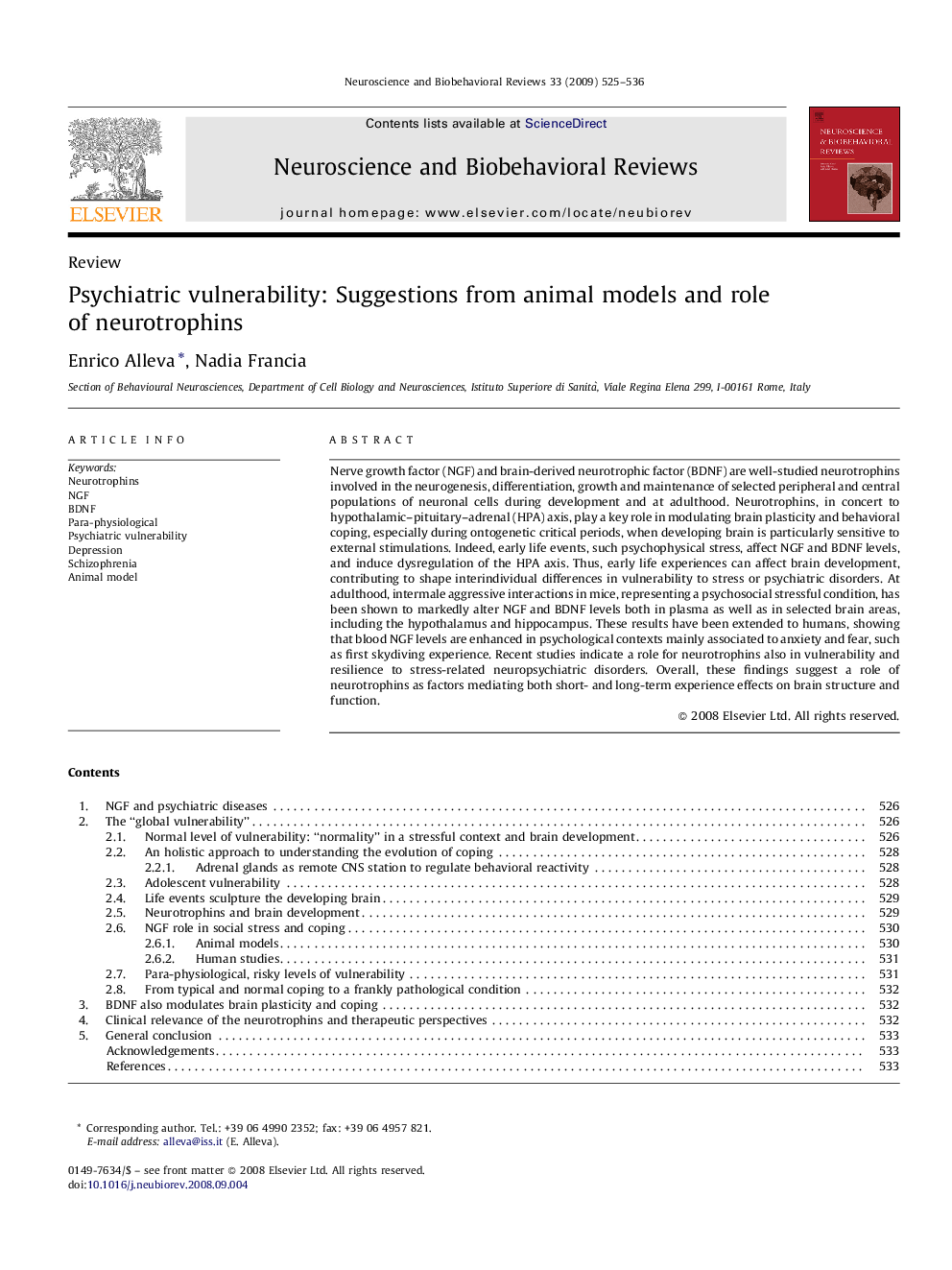| Article ID | Journal | Published Year | Pages | File Type |
|---|---|---|---|---|
| 937698 | Neuroscience & Biobehavioral Reviews | 2009 | 12 Pages |
Nerve growth factor (NGF) and brain-derived neurotrophic factor (BDNF) are well-studied neurotrophins involved in the neurogenesis, differentiation, growth and maintenance of selected peripheral and central populations of neuronal cells during development and at adulthood. Neurotrophins, in concert to hypothalamic–pituitary–adrenal (HPA) axis, play a key role in modulating brain plasticity and behavioral coping, especially during ontogenetic critical periods, when developing brain is particularly sensitive to external stimulations. Indeed, early life events, such psychophysical stress, affect NGF and BDNF levels, and induce dysregulation of the HPA axis. Thus, early life experiences can affect brain development, contributing to shape interindividual differences in vulnerability to stress or psychiatric disorders. At adulthood, intermale aggressive interactions in mice, representing a psychosocial stressful condition, has been shown to markedly alter NGF and BDNF levels both in plasma as well as in selected brain areas, including the hypothalamus and hippocampus. These results have been extended to humans, showing that blood NGF levels are enhanced in psychological contexts mainly associated to anxiety and fear, such as first skydiving experience. Recent studies indicate a role for neurotrophins also in vulnerability and resilience to stress-related neuropsychiatric disorders. Overall, these findings suggest a role of neurotrophins as factors mediating both short- and long-term experience effects on brain structure and function.
